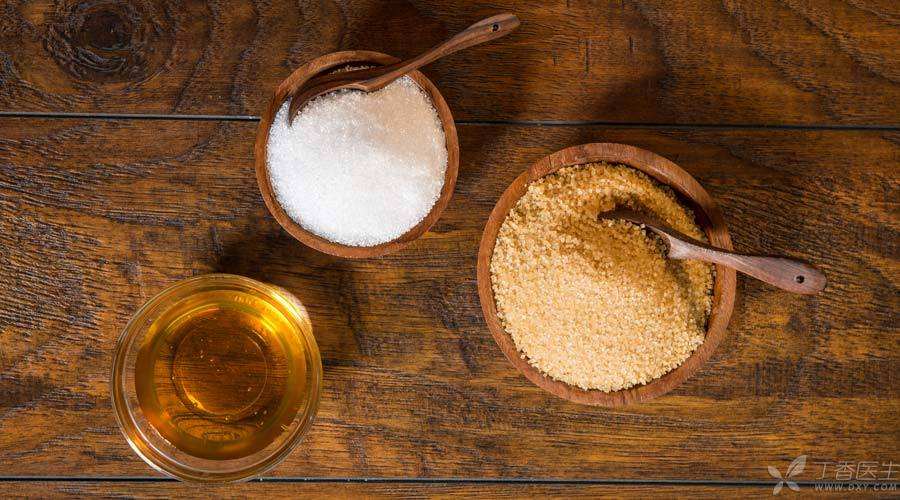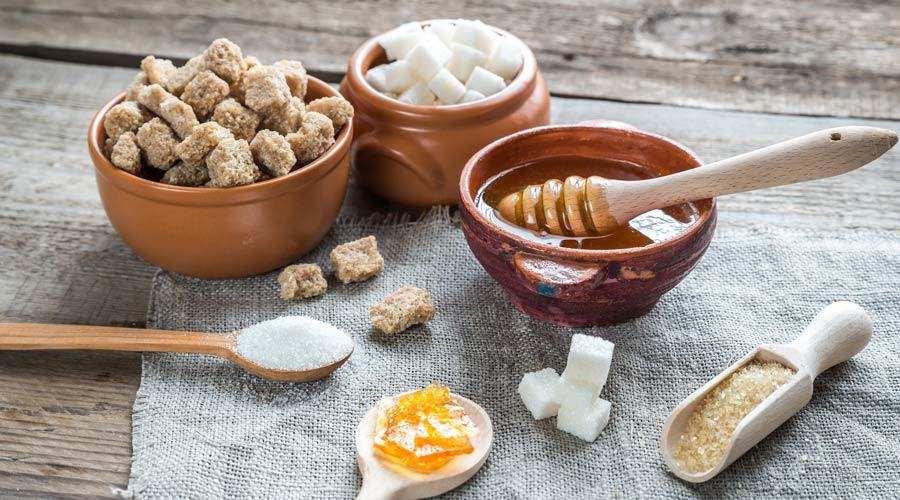
Sugar is often invisible in countless products such as beverages, candy, bread, snacks, biscuits, energy bars, jam, jelly, candied fruit, ice cream, ice cream, quick-brewing aleurone, etc.
After adding sugar, the food tastes better and people will want to eat more. You are likely to eat a kilo of 100 grams of sugar in one day and have no feeling of eating more at all!
If sugar must be added, is there any what sugar that can be eaten more?
Honey?
Honey is an ancient source of natural sweetness.
In natural mature honey, the total sugar content exceeds 85%, which is very high. The main components are fructose, glucose and sucrose, and the proportion varies according to honey varieties.
Honey with high glucose is often said to be [nourishing], while honey with high fructose is often said to be [moistening dryness].
Many people like to drink light honey water, precisely because fructose is easy to absorb water and quenches thirst, and fructose will feel cool and refreshing after being frozen at low temperature.
It is true that natural honey contains a variety of enzymes, but if the health care effect of honey is blown too magical, there is no need to be superstitious, probably… it will only make honey more expensive to sell.
Honey can only be eaten in small quantities and is not suitable for eating more.
Brown sugar?

Brown sugar comes from sugar cane. Sugarcane juice is boiled into syrup, which is concentrated and dried to obtain brown sugar.
Although vitamin C was lost in the sugar making process, the mineral composition of sugar cane and brown substances produced by Maillard reaction are still there… However, brown sugar is not the main food for us to supplement minerals, and this content is of little significance.
The sugar content in brown sugar is 88% ~ 86%. When refined into white sugar and crystal sugar, the sugar content is as high as over 99.5%, and almost all the nutrients are removed.
If you have to compare, adding brown sugar is more nutritionally economical than adding white sugar… then a little, but you can’t eat more.
Glucose?
Many friends will think that glucose is a good thing, because patients have to inject glucose intravenously when they cannot eat, so they think it is nutrition and buy it specially for children and the weak.
For people who can digest and absorb normally, eating glucose is not as good as eating rice, noodles, cakes and other staple foods directly, because the main starch contained is made of glucose.
In addition, glucose has a high glycemic index and a low sweetness. If it is used intensively, it will also cause gastrointestinal discomfort, hypoglycemia and other discomfort reactions to a certain extent.
In order to eliminate fatigue and quickly restore glycogen reserves, athletes and exercisers can drink with other electrolytes after training.
However, people who can eat normally and do not do physical training really do not need glucose for the rest of their lives.
Fructose?
We mentioned fructose contained in honey earlier. It is not only sweet, but also easy to dissolve in water and has a cool feeling. It is suitable for making drinks or adding sweets.
Another characteristic of fructose is that blood sugar rises slowly and does not need insulin to regulate it, but this often leads to misunderstanding.
Many products selling fructose will make a big fuss about it, so that people often think fructose is suitable for diabetics. But in fact…
- Fructose intake does not bring enough satiety, it is easy to eat too much. Fructose is not conducive to the control of blood sugar. Excessive fructose will synthesize fat in the liver, increase triglycerides in blood, and also hinder the use of chromium. Some people with weak digestion have [fructose intolerance] reaction, which is easy to produce diarrhea and other discomfort.
In other words, fructose is far from as healthy as legend has it.
Fructose syrup?
Apart from white sugar, the favorite sweetness in sweet drinks is high fructose syrup.
Fructose syrup, which can be simply understood as a mixture of glucose and fructose, is really a perfect sweetener for the production of cool drinks and cold drinks.
However, unfortunately, according to the current research evidence, high fructose syrup does not have any health advantages over white sugar.
Sweetener?
In the end, you may also say, not to say that all kinds of natural or synthetic sweeteners have very low calories and do not raise blood sugar or cause dental caries? Aren’t they [very healthy]?
This is not necessarily the case.
For example, excessive intake of sugar alcohol may cause diarrhea, and excessive intake of oligosaccharides may cause flatulence.
Well, isn’t it a bit…
Disappointment
The reality is so cruel.
It can be said that all sugar and sugary and sweet foods cannot be eaten willfully, and excessive amounts are harmful to health.
If the intake of sugar can be controlled below 10% of the total daily energy, the limit is about 50g, or below 25g (5%), there is no need to worry too much.
